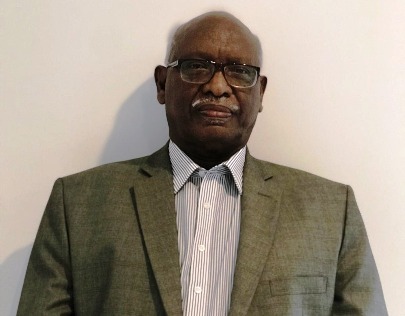Opinion
The Popular Base and the Mastery of Change

Zein Al-Abidin Saleh Abdul Rahman
One of William Shakespeare’s sayings goes: “Negotiation is the art of dividing the cake in such a way that everyone leaves believing they have received the largest piece.”
Before the war, the path to negotiation was clear, and the majority called for expanding and increasing the number of seats at the dialogue table to discuss the crisis and reach national consensus. However, the minority strongly rejected this with the saying “No to political flooding.” External countries, especially those in the Quartet and the European Union, insisted that the dialogue seats remain limited because they did not want to increase the number of people they employed to achieve their agenda. Insisting on narrowing the political process inevitably deepens the crisis, which led to the coup attempt by the militia. The issue must be addressed with complete honesty and clarity, without obscuring facts and their contexts. Ending the war without a fundamental change in the political equation will only lead to another more brutal war. Therefore, the defeat or surrender of the militia is the strategy that must be pursued.
Now, the discourse has reversed; the majority supporting the armed forces, along with groups of volunteers and popular resistance, are pressuring the military leadership not to accept any calls for negotiation or dialogue, fearing the militia’s return to the pre-war status. The majority stands against the return of the militia to the political and military arenas. The military, by rejecting calls for negotiation, is implementing the will of the majority, who stand with it on the front lines. Now, the world is beginning to understand that the war must bring about substantial changes on the political scene in Sudan, especially with the emergence of new elements who are aware of their role and the transformations taking place in society as a result of the war. Interest groups always change their positions according to new societal dynamics. Those who believe that achieving the interests of foreign powers will necessarily help them achieve their goals of power lack political wisdom because, from the start, they made themselves tools, not rightful owners.
Indeed, a shift has occurred in positions, particularly from the minority attempting “negotiations” from a perspective of need. They realize that their return to the political scene can only happen through a “political settlement between the country’s authorities and the militia,” which would allow the militia’s return and with it its political wing. However, defeating or surrendering the militia means a radical change in the political map. The scarecrow term “Islamists and remnants” and labeling them as decision-makers who oppose negotiations has become less effective; the goal was to intimidate the West and some Gulf countries, and the political equations in the region have surpassed that. Therefore, any political process must consider the realities on the ground and the country’s and people’s interests.
The people alone are capable of changing the political equations in the country, and only they can set a new agenda that others must follow. Therefore, the military leadership understands this equation and cannot bypass it after securing the majority’s support. Those who try to doubt that the majority of the people stand with the army in its military fight against the militia are only trying to reassure themselves so they don’t feel politically defeated. They have managed their battle without the necessary political awareness, placing themselves in opposition to the people’s demands, which forces them to change their losing convictions and view the issue objectively, based on the realities on the ground. They think the situation is only a political struggle, even though it has gone beyond that, as it targets the country’s unity and attempts to alter its demographic makeup, as well as plundering its resources by the countries supporting the militia, who employ a large number of politicians, intellectuals, and media figures.
The war will end, and the militia will be excluded from the upcoming political equations. New leadership and a new agenda will emerge. Those who want to be part of the future political process must reconsider their calculations and change the faces that failed in managing the crisis, which led the country to war, and replace leaders who have aligned themselves with foreign agendas. As for attempts to hint that some want to declare a government in exile or one in areas controlled by the militia, these have proven their failure. They are searching for power, not genuine solutions to the crisis, and they have no social base to support them. They only wave the militia’s gun while denying that they are its political wing. The war will create a new reality for Sudan, much like independence did. It will bring in new elements who have made great sacrifices to keep Sudan united and independent, defeating the conspiracy against it. We ask God for good insight.



